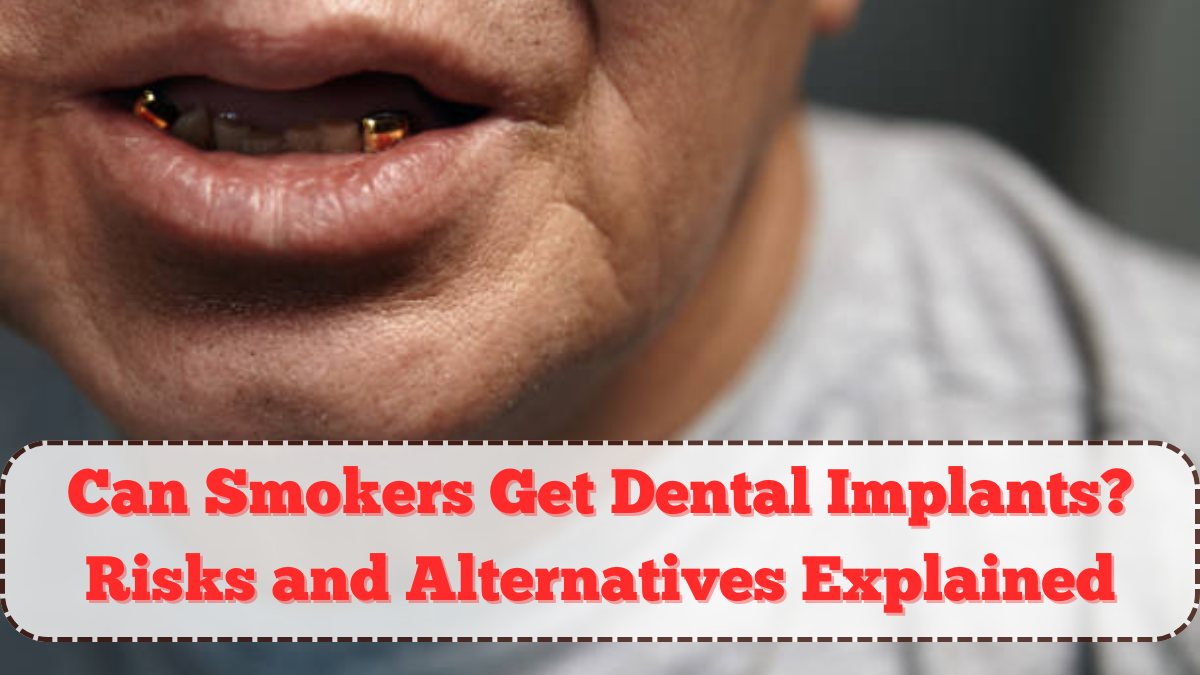If you’re a smoker and considering dental implants, you’re not alone. Many UK patients wonder whether smoking disqualifies them from getting implants or if the results will last as long. The truth is that while smokers and implants can coexist, there are serious risks to consider—especially when it comes to healing and long-term oral health.
Smoking impacts the body’s ability to heal and increases the chance of implant failure. However, this doesn’t mean smokers are automatically disqualified from getting implants. With the right precautions and a commitment to improving oral hygiene, implants can still be a viable option.
Here’s a detailed guide on what smokers in the UK should know before moving forward with a dental implant procedure.

Why Smoking Increases Implant Risks
Smoking affects blood circulation and reduces the body’s healing response. After the dental implant is placed into the jawbone, it must go through a process called osseointegration, where the implant fuses with the bone. Smoking disrupts this process, leading to a higher rate of implant failure.
Key risks for smokers and implants include:
-
Delayed healing after surgery
-
Increased chances of infection at the implant site
-
Poor osseointegration
-
Gum tissue recession around the implant
-
Long-term inflammation and bone loss
Statistically, smokers have up to twice the implant failure rate compared to non-smokers.
Can Smokers Still Get Implants in the UK?
Yes, but it depends on your oral health condition and your dentist’s evaluation. Many UK implant dentists will accept smoker patients but require them to quit or cut back before and after the procedure.
Most surgeons advise:
-
Quitting smoking 1–2 weeks before the surgery
-
Staying smoke-free during the implant recovery period (2–4 months)
-
Adopting strict oral hygiene habits to reduce complications
Even temporary cessation can significantly improve the success rate of the implant procedure for smokers and implants.
Alternatives to Dental Implants for Smokers
If quitting isn’t possible or your jawbone condition isn’t suitable, other options are available:
| Option | Pros | Cons |
|---|---|---|
| Fixed Bridges | Non-surgical, lower cost | Affects neighboring teeth |
| Removable Dentures | Affordable, no implant needed | Less stable, may shift during use |
| Mini Implants | Less invasive, used for small gaps | Not suitable for full mouth restoration |
Your dentist will assess whether your bone structure and oral health make you a candidate for one of these alternatives.
Tips for Smokers to Improve Implant Success
To reduce the risk of implant failure, follow these practical tips:
-
Stop smoking (even temporarily) before and after surgery
-
Brush twice daily and use an antiseptic mouthwash
-
Visit your dentist regularly for cleanings and check-ups
-
Eat a balanced diet to boost your body’s healing power
-
Stay hydrated and avoid alcohol during implant recovery
These small changes can make a big difference in the success of implants for smokers and implants cases.
Long-Term Outlook for Smokers with Implants
While implants in smokers are more vulnerable, they can still succeed with the right care. Patients who reduce smoking and follow aftercare instructions often have successful outcomes. However, lifetime maintenance is crucial, and regular monitoring by your dentist is necessary to prevent implant failure due to gum or bone issues.
FAQs
Can I get dental implants if I smoke regularly?
Yes, but smoking increases the risk of implant failure. Your dentist may require you to stop smoking before and after the procedure to improve your oral health and implant success.
How does smoking affect implant healing?
Smoking restricts blood flow, delays healing, and can interfere with bone integration. This makes smokers and implants a higher-risk combination.
Are there alternatives to dental implants for smokers?
Yes. Options include fixed bridges, removable dentures, or mini implants. These may have fewer complications if quitting smoking isn’t possible.
What happens if I smoke after getting dental implants?
It increases the risk of infection, bone loss, and long-term implant failure. It’s best to avoid smoking during the healing phase.
Do dentists in the UK treat smokers who need implants?
Yes, but many recommend a smoking cessation plan as part of the treatment. Dentists focus on improving your oral health before and after surgery.
Click here to know more.
